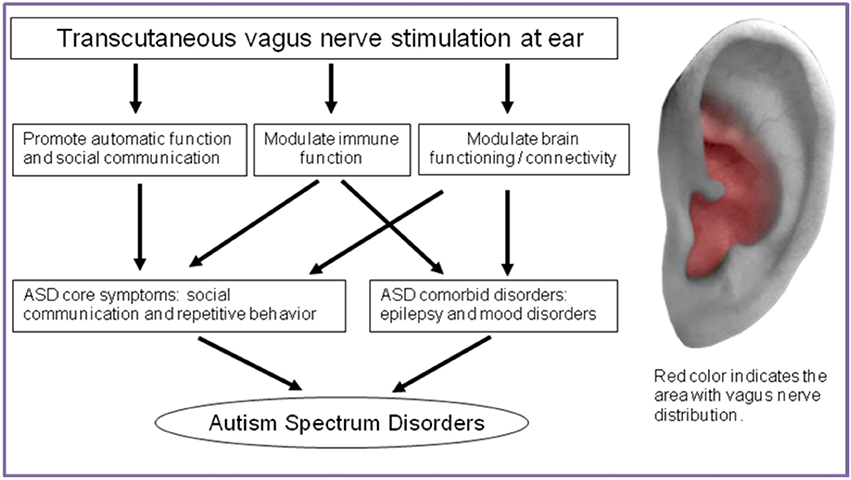how effective are vagus nerve stimulators for autism
Vagus nerve stimulators (VNS) have emerged as a potential treatment option for individuals with autism spectrum disorder (ASD), with various studies highlighting their effectiveness.
Research indicates that VNS can produce positive outcomes for children with both epilepsy and ASD. Specifically, one study found that VNS not only reduced seizure frequency but also led to improvements in mood and behavior among autistic children, suggesting ancillary benefits beyond seizure control (see more at PMC5496407). Another study reported favorable effects of VNS on autistic behaviors, providing preliminary clinical support for its use in younger populations (details available at PMC8924444).
Moreover, a retrospective cohort study involving 77 individuals with ASD and epilepsy showed that VNS significantly improved quality of life and mood, indicating that the treatment may confer broader benefits for those on the autism spectrum (ScienceDirect).
An additional perspective offered by the PX Docs highlights that trials focusing on VNS for epilepsy revealed improvements in mood and behavior, reinforcing the potential of this therapy for children with ASD (PX Docs).
Transcutaneous VNS (taVNS), a non-invasive variant of traditional VNS, has also demonstrated promising results. In an open-label trial involving 12 individuals with ASD, improvements were noted in anxiety and sleepiness, suggesting that even less invasive approaches may yield beneficial outcomes for those on the spectrum (Frontiers in Psychiatry).
Overall, existing literature indicates that vagus nerve stimulation holds potential as a treatment strategy for enhancing behavioral and emotional outcomes in individuals with autism, warranting further investigation to establish its efficacy and safety comprehensively.
Sources


Related Questions
Work fast from anywhere
Stay up to date and move work forward with BrutusAI on macOS/iOS/web & android. Download the app today.
